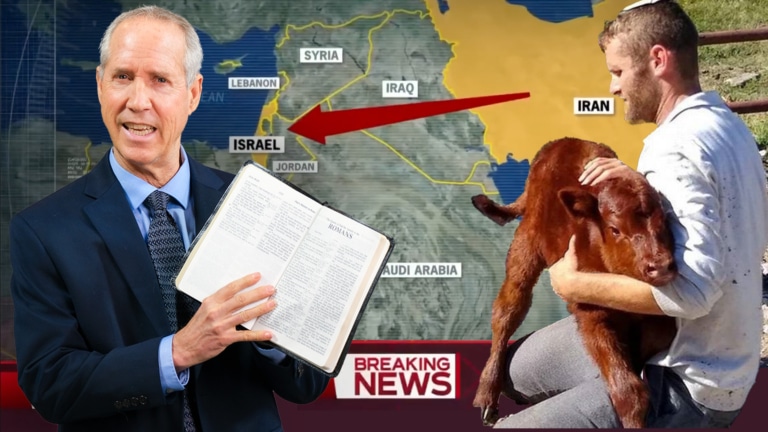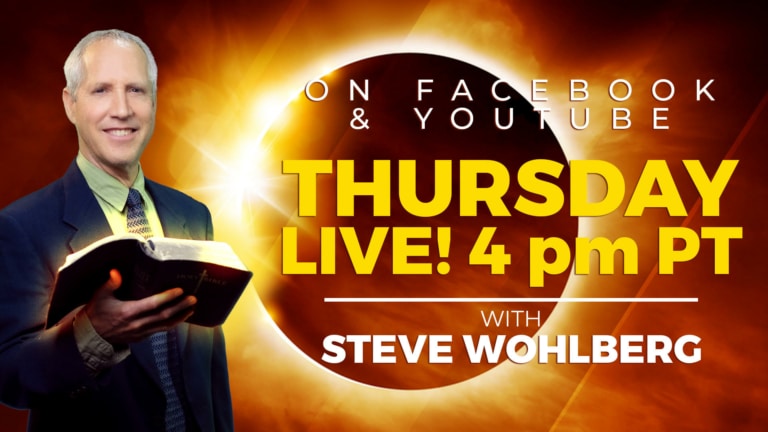Mohammed Ali (as the story goes) boarded an airplane and refused to buckle up. “Mr. Ali,” commanded the flight attendant, “everyone must fasten their seatbelt.” “I don’t need one,” the fighter proudly responded, “I’m Superman!” “No, you’re not,” the woman countered promptly, “Superman didn’t need an airplane. Now fasten your seatbelt or you will be ushered off this aircraft.” Needless to say, the man with a punch complied.
The moral of this story is that each of us – including Mohammed Ali – needs a good dose of humility. Jesus Christ said, “Everyone who exalts himself will be humbled, and he who humbles himself shall be exalted” (Luke 18:14). As we continue our journey into the highly controversial doctrine of ‘hell-fire,’ it is my hope that each of my readers will put aside preconceived opinions and humbly examine the Bible texts below. Fasten your seatbelt! You may need one.
First, let’s take a close look at the book of Jude, right before Revelation. At the beginning of his letter, Jude urged Christians to “earnestly contend for the faith which was once delivered to the saints” (verse 3). Next he warned of “certain men” who were planting false doctrines inside the early church (see verse 4). In verses 5 and 6, Jude warned of the consequences of being led astray. Then he warned about “the vengeance of eternal fire” (verse 7). This is what we must examine, humbly and reverently.
Here’s the entire verse:
“Even as Sodom and Gomorrah, and the cities about them in like manner, giving themselves over to fornication, and going after strange flesh, are set forth for an example, suffering the vengeance of eternal fire” (Jude 7)
Notice carefully: it was the physical cities of Sodom and Gomorrah that “suffered the vengeance of eternal fire,” not just the people. In addition, their punishment is “set forth as an example” of what will happen to the unsaved. In 2 Peter, we find an almost identical verse, yet Peter inserts one tiny, significant detail. Look closely:
“And turning the cities of Sodom and Gomorrah into ashes condemned them with an overthrow, making them an example unto all those that after should live ungodly” (2 Peter 2:6, italics added).
What was the net result of that “eternal fire” which fell upon Sodom and Gomorrah? Those cities became ashes. But that’s not all. Describing “the punishment of the sin of Sodom,” Jeremiah said that those evil cities were “overthrown as in a moment” (Lamentations 4:6, italics added). Now put the pieces together. By comparing Jude 7 and 2 Peter 2:6 with Lamentations 4:6, we discover plainly that the “the vengeance of eternal fire” was so incredibly hot that it reduced Sodom and Gomorrah “into ashes” in “a moment” of time. Now think about it. Are Sodom and Gomorrah still destroyed? Yes. But are they burning now? Obviously not. Then what does “eternal fire” mean? By comparing Scripture with Scripture, it means that the fire came from God and that the punishment lasts forever, not the flames. And again, both Jude and Peter called this punishment “an example” of what will happen to all the lost.
Jesus Christ also warned that He will someday declare to lost sinners, “Depart from me, you cursed, into everlasting fire prepared for the devil and his angels” (Matthew 25:41, italics added). Is this fire the same type of fire mentioned in Jude 7, one which destroys completely? We know it is because five verses later our Lord clarified, “And these [the lost] shall go away into everlasting punishment, but the righteous into life eternal” (Matthew 25:46). Thus the lost experience “everlasting punishment,” not punishing, just like the Sodomites.
Paul also wrote about “everlasting” consequences overwhelming unsaved sinners. Does his teaching agree with Jesus Christ and Jude? In the following passage, you will see that it does. Paul warned that when Jesus Christ returns He will come “in flaming fire taking vengeance on them that know not God, and that obey not the gospel of our Lord Jesus Christ: Who shall be punished with everlasting destruction from the presence of the Lord and from the glory of his power …” (2 Thessalonians 1:8, 9, italics added). Here “everlasting” is combined with “destruction,” which means the lost are destroyed forever, just like the Gomorrahites.
In addition to Jesus Christ, Jude, and Paul, John the Baptist also warned about “unquenchable fire” engulfing the unredeemed. On the surface, one might assume John was referring to ceaselessly burning flames. But he wasn’t. Calling the saved “wheat” and the lost “chaff,” the wilderness prophet announced that God’s Messiah would “thoroughly purge his floor, and gather his wheat into the garner; but he will burn up the chaff with unquenchable fire” (Matthew 3:12, italics added). Thus “unquenchable fire” isn’t fire that burns forever, but fire that can’t be snuffed out by man. It burns up the chaff until there is nothing left.
The Twin Towers of the World Trade Center no longer exist. On September 11, 2001 they were rammed by two hijacked planes on a mission of death. Airplane fuel ignited and blazing fires could not be quenched. What remains is little more than ashes and memories, somewhat comparable to Sodom and Gomorrah. For those who lost loved ones, the results of that fateful day seem eternal.
The Muslim terrorists who brought down the Twin Towers believed they were serving Allah. They also imagined they would be rewarded with 72 virgins in heaven for their faithfulness to God’s truth. But they were grossly mistaken. Their future will be quite different from their expectations. How about us? Do we know what the Bible really teaches about heaven, how to get there, and the fate of the lost?
In this article we have discovered that Jesus Christ (Matthew 25:41, 46), John the Baptist (Matthew 3:12), Paul (2 Thessalonians 1:8, 9) and Jude (verse 7) all predicted that “eternal fire,” “everlasting fire,” and “unquenchable fire,” will eventually “burn up” all unsaved sinners to their “everlasting destruction,” just like Sodom and Gomorrah became “ashes” in “a moment.” And Sodom’s holy judgment is “set forth as an example” (Jude 7) to us today.
Let’s humbly learn this lesson from God’s Word.
Let’s “earnestly contend for the faith which was once delivered to the saints” (Jude 3).






